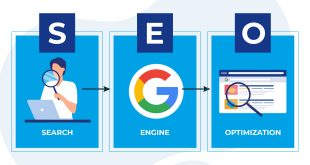In today’s fast-paced world of technology, Artificial Intelligence (AI) has been a game changer, especially in marketing through digital channels. What is AI? As stated, AI refers to imitating human intelligence by machines that are programmed to think and learn just like humans. From the beginning of simple automation to the advanced machine learning algorithms present, AI has significantly changed how companies connect with their customers and attract them.
Understanding Digital Marketing
Before examining the impact of AI, it is essential to understand what digital marketing is all about. Digital marketing promotes products or services using online channels, such as social media, websites, email, or search engines. It’s an advancement of traditional marketing heavily dependent on billboards, printed press, and TV advertisements. The digital method permits more precise and interactive marketing strategies.
AI in Digital Marketing
Integrating AI into marketing isn’t a fad; it’s an entire revolution. With AI marketing, marketers can examine vast amounts of data, forecast the behavior of consumers, and provide highly customized experiences. This change creates more effective and efficient marketing strategies that yield higher payoffs.

AI-Powered Analytics
One of the significant benefits of AI in digital marketing is the ability to manage information. AI systems cancan collect and process vast amounts of data by identifying patterns and trends that are impossible for human beings to detect by hand. Predictive analytics, made possible by AI can benefit businesses to predict patterns, comprehend customer demands, and improve their marketing strategies to meet these needs.
Personalization and Customer Experience
Personalization is the foundation of modern marketing, which is why AI is doing well in this field. Through data analysis from users, AI can create highly personal content, recommendations, and even offers. This kind of customization improves the experience for customers ,makes interactions more engaging and relevant, and can significantly increase the customer’s loyalty and raise conversions.
AI in Content Creation
Content is the most critical aspect of digital marketing, and AI is becoming a formidable partner in material creation. AI tools cancan create quality content,, including blog posts and updates on social media, ensuring they are optimized for SEO. They analyze the most effective material in real time, assisting marketers create material that is more likely to appeal to their readers and be successful in search results.
Chatbots and Customer Support
Chatbots have been gaining popularity as an essential AI application in digital marketing. The AI-powered bots add immediate customer service to answer queries and can even benefit users navigating how to sell. Chatbots are available 24/7 and enhance customer satisfaction by providing prompt and accurate answers, which frees human employees to address more complicated issues.
AI-Driven Advertising
AI revolutionizes advertising with programmatic advertising. In this type of advertising, advertisements are purchased and then put in place using AI algorithmic techniques. This technique guarantees that ads are presented to the appropriate target audience in the proper moment, increasing ad spending effectiveness. Furthermore, AI helps create targeted advertising campaigns based on user’s behavior and preferences, resulting in greater engagement and higher conversion rates.
Social Media Management with AI
Managing social networks can seem a challenge. However, AI helps simplify the process. AI-powered tools for social listening monitor brand mentions, sentiments, and trends across different platforms, delivering valuable information for marketers. Furthermore, AI can automate material planning and management, assuring the same strategic online presence.
Email Marketing Automation
Marketing via email is still a powerful instrument, but AI can take it to new levels. AI algorithms can segment groups of people, personalize content, and optimize send times to maximize impact. This degree of automation can lead to more effective emails, higher open rates,, and better customer retention.
AI in Search Engine Optimization (SEO)
SEO is crucial for the online visibility of websites. SEO is essential for online visibility, and AI transforms how it’s performed. AI-driven SEO tools evaluate the algorithms of search engines and user behavior to suggest strategies to boost ranking in search results. From optimizing keywords to material suggestions, AI makes it easier for marketers to boost the effectiveness of their SEO efforts and increase organic traffic.
Voice Search and AI
The popularity of voice search driven by AI assistants such as Siri and Alexa is transforming the world of digital marketing. Optimizing for voice searches requires comprehending natural language queries and providing precise, accurate responses. Companies that can adjust to this change can procure an edge in the ever-changing search landscape.
AI and Data Privacy
Although AI has many advantages,, it raises ethical concerns, specifically about the privacy of data. Marketers must be able to balance personalization with respect for users’ privacy by ensuring transparency in data practices and adherence to rules such as GDPR. Building trust with customers is essential for sustainable AI-driven marketing.
Challenges of AI in Digital Marketing
Although it has its merits, AI in digital marketing is not without its issues. Technology limitations, like the requirement for huge quantities of data as well as advanced computing capabilities, could hinder the development. There’s also a constant debate over the right equilibrium between human imagination and AI effectiveness. Marketers have to figure out ways to incorporate AI but without sacrificing the human element that makes their ads relevant and original.
AI in Influencer Marketing
Influencer marketing has exploded in popularity in recent years, and AI plays an integral part in its development. AI tools can help identify the most influential influencers by studying the metrics of engagement, demographics of audiences, and material quality. This allows brands to collaborate with influencers that align with their ideals and can have a significant impact. Furthermore, AI can track the impact of influencer marketing campaigns in real-time, offering insights into ROI and allowing data-driven changes.
Predictive Customer Insights
Understanding the future behavior of customers is a significant advantage, and AI excels in predictive analytics. Forecast future demands and preferences. Studying past interactions, purchases, and market trends enables businesses to adjust their marketing strategies to be proactive and warrant that they can can meet customers’ needs before they become apparent. Predictive data can also help identify the churn risk and enable businesses to take proactive steps to keep customers.
AI-Enhanced Visual and Video Content
Video and visual material are essential for attracting viewers, and AI enhances the creation of and optimization this material an AI tools can create video content, edit images, and even design graphics based on specific guidelines. This is not just time-saving but also guarantees consistency and quality. Additionally, AI can analyze visual material performance, offer suggestions for improvement, and help marketers determine what material resonates with their customers.
Sentiment Analysis
AI-powered tools for sentiment analysis can determine the public’s opinion and emotional reactions from a vast amount of data, such as reviews, social media posts, and comments. This aids marketers in understanding the way the public perceives their brand, pinpoint potential PR problems, and evaluate the performance of their marketing campaigns. Companies can make educated decisions and modify their message to boost their brand’s reputation and increase customer satisfaction by understanding customers’ sentiments.
AI in Competitive Analysis
Staying ahead of your competition is vital. AI assists in analyzing competitive dynamics in depth. AI tools can track the activities of competitors, monitor their online presence, and analyze their strategies. This data provides valuable insights into trends in the market, helping companies develop strategies to gain an advantage over competitors. AI allows for real-time monitoring of competitors’ campaigns, allowing for quick responses to market trends.
Dynamic Pricing Strategies
AI is changing pricing strategies by utilizing innovative pricing algorithms. AI can adjust prices in real time by analyzing factors like the demand for goods, competitors’ pricing, and customer behavior, maximizing profit and revenue. This method ensures that prices are fair and in line with market trends to attract more customers and improve sales.
AI in Lead Generation and Scoring
The process of scoring and scoring leads is an essential aspect of marketing, and AI can significantly improve the process. AI can analyze vast amounts of data to determine the most qualified leads, estimate their probability of conversion, and prioritize those to follow up. This increases the effectiveness of sales teams, allowing them to concentrate on the most promising prospects, thus increasing the conversion rate overall.
AI-Powered Market Research
Market research is essential to understand trends in the industry as well as consumer preferences. AI simplifies the process by looking at large data sets for patterns, identifying them, and providing information quickly and precisely. This allows businesses to remain informed of the market’s trends, make informed decisions, and adjust their strategies to adapt to the changing requirements of their customers.
AI in Customer Journey Mapping
Understanding the customer journey is essential to help provide personalized experiences, and AI excels at mapping the customer’s journey. Through analyzing customer interactions across different touchpoints, AI can spot the most critical moments and points of pain. This helps businesses improve the customer experience, providing satisfaction and seamless service beginning with the initial call to post-purchase assistance.
Future Trends in AI and Digital Marketing
The direction of AI in digital marketing will be bright, with many emerging trends expected to shape the field. Augmented Reality (AR) and VR (VR) can create greater immersive and dynamic marketing environments. AI-driven visual and vocal search capabilities continue to develop, requiring companies to modify their SEO strategies. Furthermore, AI will be more significant in making real-time decisions, allowing for more responsive and agile marketing initiatives.
Conclusion
AI transforms digital marketing by providing the tools, insights, and techniques that improve efficiency in personalization, effectiveness, and efficiency. In everything from predictive analytics to better customer user experiences, AI is revolutionizing how companies interact with their customers. As technology advances, keeping abreast of AI developments and incorporating the latest innovations into marketing strategies is essential for successful implementation. Making the most of AI’s potential while dealing with ethical and practical issues can benefit companies succeed in the ever-changing digital environment.
FAQs
How is AI changing digital marketing?
AI transforms digital marketing through the use of sophisticated tools for the analysis of data personalizedization, automation, and customer engagement, which results in more efficient and effective marketing strategies.
What are the primary advantages of AI in the field of digital marketing?
AI can deliver many advantages, including better data analytics, improved personalization, automatized material creation, adequate customer support, and improved marketing campaigns.
Can AI replace human marketers?
Although AI can complete various tasks, it can’t replace human intuition, creativity, and strategic thought. AI is a potent tool that enhances human marketers’ abilities.
What is the desirable way to use AI to boost the customer experience?
AI can improve customers’ experience by providing customized content, providing immediate support via chatbots, and analyzing customers’ behavior to anticipate their requirements and preferences.
What are the ethical issues with AI in the field of digital marketing?
Ethics concerns are privacy, transparency, and the risk of biases in AI algorithms. Marketers must ensure they are responsible for their AI use by adhering to data protection regulations and building consumer confidence.
Read More: Digital Business Trends
 Digital Business Trends Powering Growth With Digital Strategies.
Digital Business Trends Powering Growth With Digital Strategies. 


